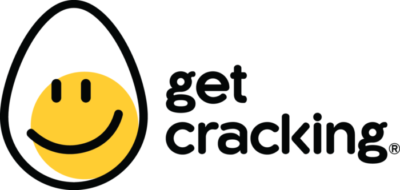sponsored
4 min Read
Boosting Brain Development with Eggs: The Importance of Choline for Your Child

June 22, 2023
sponsored
4 min Read

June 22, 2023

Choline and Brain Development
The first 1000 days of your child’s life are a crucial period for brain development. From conception to the age of two to three years, their little brains are growing and forming the foundation for future cognitive abilities. Supporting their brain health during this critical time is of utmost importance.
One essential nutrient that plays a significant role in this process is choline.
Read on to learn more about choline, how it contributes to healthy brain development and how eggs fit into the picture.
What is choline?
Choline is a nutrient that plays a vital role in supporting healthy brain development. It contributes to various essential processes, such as forming cell membranes and producing chemical messengers in the brain (called neurotransmitters) which are responsible for various essential functions like mood regulation. Additionally, choline plays a role in controlling which genes in the brain are activated or deactivated. These are all critical processes for the optimal functioning of the brain and its ability to facilitate learning, memory and overall cognitive abilities.
Eggs are an egg-cellent source of choline
Choline is a nutrient that is not abundantly present in many common foods. However, eggs are an exception, as they pack a significant amount of choline in a single serving.
How much choline does my child need?
To ensure your child’s brain development is well-supported, it is important to provide them with enough amounts of choline as they grow. Canadian Infant Feeding Guidelines recommend introducing eggs to babies at around six months of age to help prevent an egg allergy.
Here are the recommended adequate daily intake levels of choline for children:
Infants:
Click here for more information about eggs for your baby.
Children:
Remember that these are general guidelines. Adequate intake values represent the recommended daily amounts that are considered sufficient to meet the needs of the majority of healthy individuals.
Just two large eggs provide approximately 410 mg of choline, while a single large egg delivers around 205 mg. This means that enjoying just one egg in a day can provide 100 percent of your child’s daily choline requirement up until the age of three. Even though choline requirements rise at age four, eggs still provide a substantial amount of the daily requirements.
If you have any concerns or questions about your child’s individual nutritional requirements, it’s always best to consult with a healthcare professional or a registered dietitian.
A note for pregnant and/or nursing parents:
Choline is especially important during this time due to its crucial role in fetal development and infant nutrition. In the period of pregnancy and lactation, the demand for choline increases since there is a need to support a growing baby’s brain development and to ensure an adequate supply of choline through breast milk.
According to the Health Canada Dietary Reference Intakes, the recommended daily intake of choline for pregnant people is 450 mg per day, while lactating people require 550 mg per day.
Meeting these intake levels can help fuel your baby’s optimal brain health and provide sufficient choline through breast milk, benefiting the infant’s growth, development and cognitive function.
Quick and nourishing meal and snack ideas for your little one
Enjoy exploring these choline-rich recipes and make the most of the incredible benefits eggs have to offer for your child’s brain health and development.
Note: When preparing eggs for your child, ensure they are cooked thoroughly to reduce the risk of foodborne illnesses. Remember to cut the meals into bite-sized portions appropriate for your child’s development stage to avoid choking.
For more information and for delicious egg recipes, visit eggs.ca.
References:
Sponsored by: Egg Farmers of Canada, Get Cracking
